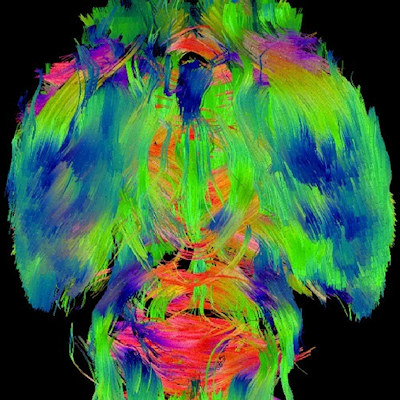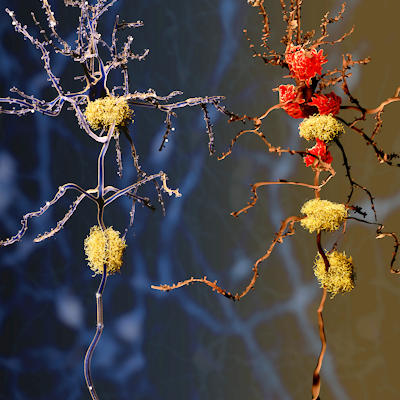December 2, 2022 -- Scientists at the Salk Institute for Biological Studies have found that neurons from people with Alzheimer's disease show deterioration and undergo a late-life stress process called cellular senescence, while senescent cells could be a way to slow neuroinflammation and neurodegeneration.
Alzheimer's patients have significantly higher proportions of neurons that express markers of age-related deterioration, according to the research team's paper published December 1 in the journal Cell Stem Cell.
Researchers have traditionally viewed senescence, the process by which cells age and stop dividing, in the context of proliferating cells. However, the discovery of senescence-like features in terminally differentiated cells, including neurons, has challenged the assumption that the phenomenon only applies to proliferating cells.
With studies linking the persistence of senescent cells late in life to tissue dysfunction and age-related disease, scientists at the Salk Institute questioned if the phenomenon plays a role in Alzheimer's, most cases of which currently have no known origin.
The questioning led the Salk scientists to pursue two avenues of research. First, the researchers took skin samples from people with Alzheimer's and converted the cells into neurons in the lab. Second, the team looked at senescence markers and gene expression in post-mortem brains of 20 people with Alzheimer's and matched healthy controls. The second step was designed to confirm the initial lab results.
"Our study clearly demonstrates that these non-replicating cells are going through the deterioration process of senescence and that it is directly related to neuroinflammation and Alzheimer's disease," Rusty Gage, PhD, president of the Salk Institute and co-corresponding author of the paper, said in a statement.
Through the analyses, the researchers showed that the brains of Alzheimer's patients have significantly higher proportions of neurons that express senescence markers, and that their distribution indicates bystander effects. Alzheimer's "patient-derived directly induced neurons exhibit strong transcriptomic, epigenetic, and molecular biomarker signatures, indicating a specific human neuronal senescence-like state," according to the researchers.
Single-cell transcriptomics showed that "senescent-like neurons face oncogenic challenges and metabolic dysfunction as well as display a pro-inflammatory signature." The researchers also performed integrative profiling of the inflammatory secretome of the induced neurons and patient cerebral spinal fluid.
Based on the findings, Gage and his collaborators speculated that senotherapeutics, drugs that target cellular senescence, may prevent or treat Alzheimer's. The researchers have begun testing the idea. An in vitro test found the combination of dasatinib and quercetin, molecules that remove senescent cells in conditions such as osteoarthritis, returned the number of senescent neurons to normal levels.
Scientists will need to overcome multiple barriers to translate that concept into an effective therapy. The molecules used in the in vitro test do not cross the blood-brain barrier. Equally, the consequences of using drugs to eliminate senescent neurons are unclear.
Copyright © 2022 scienceboard.net












